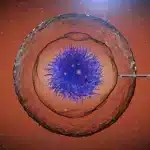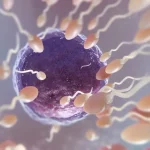
Introduction
Before starting your surrogacy journey, male fertility testing is a critical first step. These evaluations help confirm sperm quality, rule out infections or genetic risks, and ensure the best chance of success in IVF. This checklist outlines all standard medical tests your clinic or agency may require.
1. Semen Analysis (Sperm Evaluation)
This is the core fertility test for men. It measures:
- Sperm count – Total sperm per mL
- Motility – % of sperm that move properly
- Morphology – % of sperm with normal shape
- Volume – Total semen released
- Viscosity & pH – Consistency and acidity
- WBCs – Detect infection or inflammation
📌 Tip: Results guide embryo creation strategies like ICSI (Intracytoplasmic Sperm Injection).
2. Infectious Disease Screening
Required for all sperm providers in surrogacy or egg donation programs:
- HIV 1 & 2
- Hepatitis B (HBsAg, HBcAb)
- Hepatitis C antibody
- HTLV I & II
- Syphilis (RPR/VDRL)
- Gonorrhea & Chlamydia (Urine or swab)
📌 Tip: Must be done at an FDA-compliant lab within 7 days of sperm collection for frozen storage.
3. Genetic Testing (When Indicated)
To rule out inheritable disorders, especially with low sperm count:
- Karyotype – Detects chromosomal abnormalities (e.g., Klinefelter syndrome)
- CFTR Mutation – For Cystic Fibrosis carrier status
- Y-Chromosome Microdeletion – For azoospermia or severe oligospermia
📌 Tip: Some conditions affect embryo viability or fertilization rates.
4. Hormone Panel
Assesses hormonal signals regulating sperm production:
- FSH (Follicle Stimulating Hormone)
- LH (Luteinizing Hormone)
- Total and Free Testosterone
- Prolactin
- Estradiol (if imbalance is suspected)
📌 Tip: Abnormal levels may signal testicular failure or hypothalamic-pituitary issues.
5. Urologist Evaluation
A reproductive urologist will check for:
- Varicocele
- Blocked vas deferens
- Testicular volume or texture issues
- Signs of hormonal disorders
📌 Tip: A physical exam may uncover treatable causes of infertility.
6. Sperm DNA Fragmentation Test (Optional)
Assesses sperm DNA integrity—especially if:
- Previous IVF or ICSI cycles failed
- Male partner is over 40
- There’s a history of miscarriage
📌 Tip: High fragmentation may lower embryo quality or pregnancy success.
7. Blood Type & Rh Factor
Important for embryo matching and planning if using an egg donor.
Bonus Tip: Timing Matters
Most male testing must be completed within 6 months of IVF, and infectious disease panels often within 7–30 days of sperm collection, depending on regulations.
Conclusion
Whether you’re providing sperm for your partner or through a donor/surrogate arrangement, thorough fertility testing ensures the best start to your journey.
EggDonors4All and Surrogacy4All guide every Intended Parent and sperm provider through:
- Medical evaluations
- Legal compliance
- Coordination with your IVF lab
- Ongoing emotional support
📞 Have questions?
Call 1-212-661-7177 or email info@eggdonors4all.com to connect with a fertility coordinator.

Dr. Kulsoom Baloch
Dr. Kulsoom Baloch is a dedicated donor coordinator at Indian Egg Donors, leveraging her extensive background in medicine and public health. She holds an MBBS from Ziauddin University, Pakistan, and an MPH from Hofstra University, New York. With three years of clinical experience at prominent hospitals in Karachi, Pakistan, Dr. Baloch has honed her skills in patient care and medical research.





